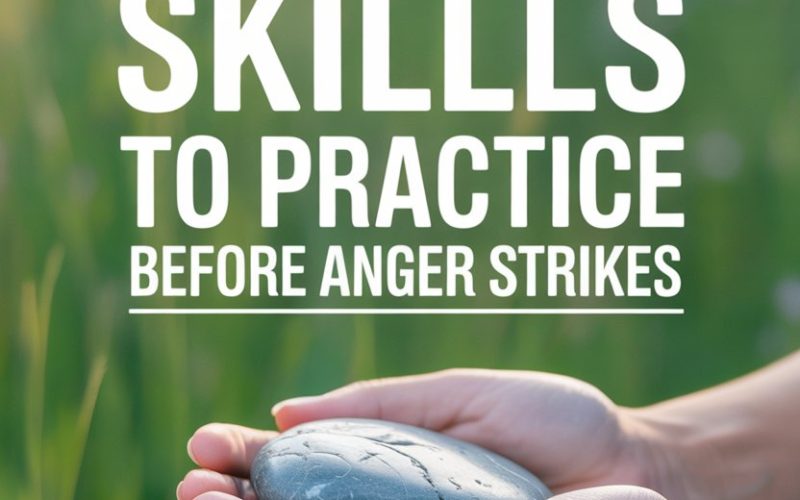Parenthood: the only job where you can feel undying love and pure, unfiltered rage—in the same five seconds.
Ever snapped at your child, then felt like the world’s worst person before bedtime? You’re far from alone. Kids have a knack for pressing that mysterious button you didn’t know you had.
So, what if you could give yourself tools to defuse that parental time bomb before you’re ticking?
Here are three calm down skills that truly work, even for parents with “spirited” children and not enough sleep.
1. Pre-Loading Your Body With Calm
“Take a deep breath” sounds like the kind of advice your nan would give, right before reminding you to wear clean undies. But science actually backs it up.
Regular, slow breathing—especially before you’re upset—can teach your body to switch gears when you need it most.
The trick is making this a routine, not a last-ditch effort when the kids are painting the dog blue. Try this:
- Find two minutes before bed, or just after your morning cuppa.
- Sit comfortably (yes, the loo counts if that’s your only sanctuary).
- Inhale through your nose for four seconds, hold for four, and exhale through your mouth for six to eight seconds.
- Repeat five times. Silly? Only until you notice you’re calmer during the day.
This isn’t about airy-fairy zen. Clinical psychologists explain that regular breathing practice tones your vagus nerve (the body’s built-in “calm down” switch).
If you make it a habit, you’re less likely to turn into “Volcano Dad” or “Shouty Mum” at a moment’s notice.
If you like your calm with a side of tech, apps like Headspace or Breathe2Relax offer guided sessions you can squeeze in while hiding from your children (we’ve all done it).
The more you train your nervous system, the faster it obeys when chaos erupts.
2. The Art of The Pause
Ever had a moment when you wanted to hurl the LEGO box out the window or shout something regrettable? That’s the nanosecond where your old friend, The Pause, struts in.
The Pause is the grown-up’s secret weapon: a skill that buys you time before your brain’s emotional storm hits full force.
What does pausing actually look like in a loud, messy house? Picture this:
Your child whines, demands, or tests the limits (again). You feel the heat in your cheeks. Stop. Do anything—tighten your fists, count your toes, recite your favourite footy team’s line-up.
The goal? Insert even a five-second gap before you react.
Research shows that just a few seconds can interrupt the chain reaction in your brain, moving you from “fight or flight” to “I’m the adult here.”
That tiny pause is like a mental speed bump. It doesn’t solve the mess, but it gives you a smidge more control.
Try scripting your responses for those trigger moments (“I need a second”; “Let me think”). Say it out loud—even if you sound a bit robotic.
Kids learn that emotions aren’t emergencies, and you’re modeling self-control. (Fake it till you make it, as my own mother used to say.)
Worried about looking silly? Better to look odd for five seconds than to spend the next hour regretting a meltdown.
3. Practising Future Calm With Visualisation
No, you don’t have to sit cross-legged and chant “om.” Visualisation is just previewing a tricky moment in your mind, then rehearsing a calmer response.
Think of it as self-parenting for the grown-up brain: you’re setting up your mental satnav to avoid that pothole of rage.
Pick your most common trigger—morning chaos, sibling bickering, relentless whinging—and imagine it in vivid detail. Now, replay it, but insert your pause, your deep breath, and a calm response (“I hear you’re upset, but I’m not ready to talk yet”).
Do this while you’re calm, maybe brushing your teeth, out on a walk, or staring at the wall wondering what on earth happened to your social life.
Research from Harvard Medical School suggests that visualising positive coping responses strengthens neural pathways—so when the real test comes, your brain is primed to choose patience over explosion.
You might feel like you’re rehearsing for a really boring play. But over time, you’ll notice your “parenting autopilot” starts to sound less like a drill sergeant and more like the person you want to be.
Bonus: you’ll be modelling for your child that big feelings are normal, but you can choose how to handle them. That’s worth more than any sticker chart.
Why Practice Matters (Even When You’re Bone Tired)
Think of these calm down skills like car insurance: you hope you never need them, but you’ll be very glad they’re there when disaster looms.
Most parents wait until they’re about to blow their top to remember to “breathe” or “count to ten,” but by then your brain’s stress alarms are clanging too loudly to listen.
The magic happens when you treat these calm down skills as part of your daily routine, not an emergency measure. Even five minutes a day helps wire your grown-up brain for patience.
It’s not about perfection—nobody expects you to morph into a serene monk by the weekend.
Miss a day? No big deal.
Yelled anyway? Welcome to the club.
Every time you try, you’re setting a new default for your reactions—and showing your little ones that grown-ups get mad, too, but we’re working on handling it.
That’s real-life resilience, not the stuff of parenting books with suspiciously tidy kitchens on the cover.
When It’s All Too Much
Sometimes, even the best skills in the world can’t save you from a day where everything goes sideways. If you notice your anger feels out of control, or you’re snapping more often than not, don’t tough it out alone.
Support from your GP, a psychologist, or parenting counsellor can do wonders—and there’s no shame in asking for help.
You’re teaching your children that grown-ups need help sometimes, too. That’s a lesson they’ll carry for life.
The Calm Parent You’re Becoming
Next time you sense that familiar frustration bubbling up, remember: you’ve got skills in your back pocket, and you’re not stuck with your worst parenting moments.
Practice a little calm every day, and before long, you might find yourself handling the morning shoe drama—or the public tantrum in aisle seven—with a bit more grace (or at least fewer regrets).
And if all else fails, there’s always the loo.




